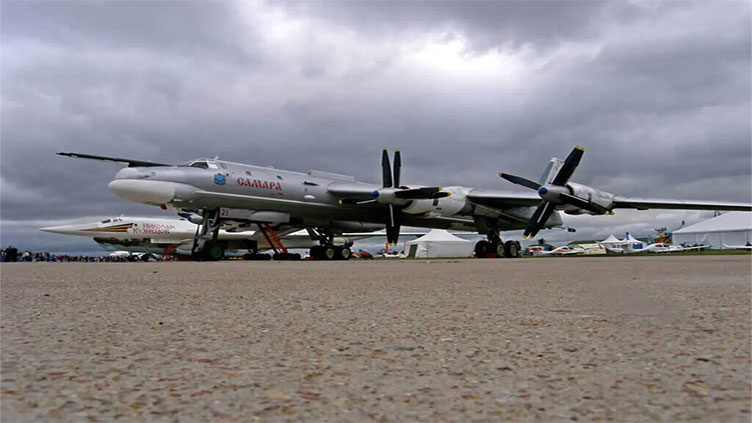No indication Russian nuclear drills are 'cover activity': Pentagon

World
US has not yet seen any indications that Russia's nuclear drills are 'cover activity'.
WASHINGTON (Reuters) - The United States has not yet seen any indications that Russia s ongoing annual "Grom" exercises of its nuclear forces may be a cover for a real deployment, US Defense Secretary Lloyd Austin said on Thursday (Oct 27).
Russian President Vladimir Putin on Wednesday observed a portion of the so-called "Grom" exercises by Russia s strategic nuclear forces, which Moscow says has involved Yars intercontinental ballistic missiles, submarines and Tupolev strategic bomber planes.
The drills have presented a potential challenge to the United States and its allies. Putin has muddied the waters about his intentions after threatening to use nuclear weapons to defend Russia in its unraveling invasion of Ukraine.
Western officials, however, have expressed confidence in their ability to detect any indications that Russia might be moving to employ such a weapon.
Austin did not signal concern, in brief remarks to reporters on the issue.
"We haven t seen anything to cause us to believe, at this point, that is some kind of cover activity," Austin said.
With Ukrainian forces advancing into Russian-occupied Kherson province, threatening a major defeat for Moscow, Russia Defense Minister Sergei Shoigu phoned Austin on Sunday to communicate allegations that Ukraine was planning to carry out an attack with a "dirty bomb".
Ukraine s President Volodymyr Zelenskyy said the allegation showed Moscow was planning such an attack with an explosive device laced with radioactive material, and sought to blame Kyiv.
But questions are also circulating about whether Moscow might use a lower-yield "tactical" nuclear weapon.
Austin said he did not believe Putin had made a decision to use a tactical nuclear weapon, and declined to outline the kinds of potential responses that the United States and its allies would consider if Moscow took such a step.
"We have been very clear from the very beginning that you would see a very significant response from the international community," Austin said.
Austin s remarks came on the same day that the Pentagon released a new nuclear strategy document that, among other things, canceled development of nuclear-armed, sea-launched cruise missiles.
Asked what message canceling that weapon sent to Moscow and Beijing, Austin told reporters there was already enough capability in the nuclear inventory already.
"I don t think this sends any message to Putin," Austin said. "He understands what our capability is."

